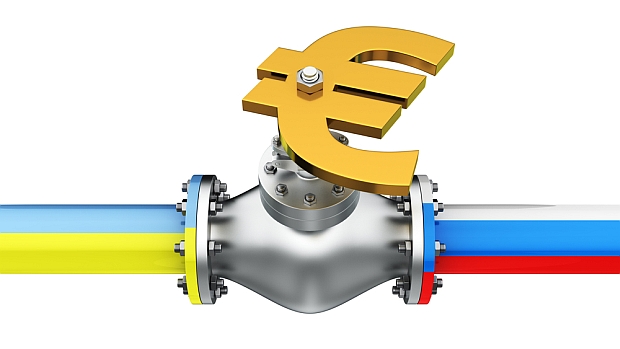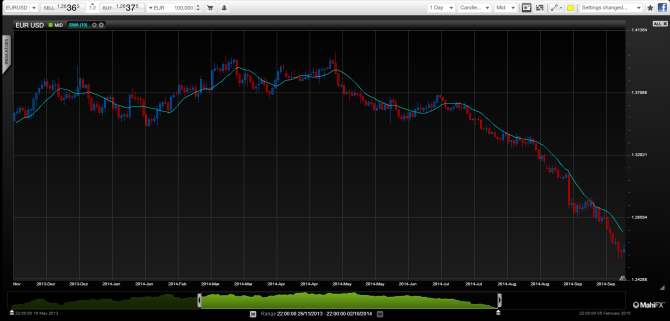Since May this year the EUR has been ceding ground to the USD, but with winter looming and with the ongoing crisis in the Ukraine the situation could worsen for the single currency.
So far the EUR’s losses versus the USD can be explained largely by the actions of the European Central Bank and its concerns over Eurozone deflation and stagnation leading to more stimulative action and the Fed’s intentions to slowly rein in monetary stimulus reflecting a stronger US economy.
However, the crisis in the Ukraine, which is pitting the West against Russia has at times undermined the EUR as well, largely because of its impact on business and investor confidence. But with winter looming those concerns are likely to grow as the situation in the Ukraine is as tense and unpredictable as ever.

The key concern for forex markets is Europe’s energy supplies. Around a third of the EU’s natural gas and oil supplies come from Russia and for Germany the percentage is around 36% and 39% respectively.
By Justin Pugsley, Markets Analyst MahiFX. Follow @MahiFX on twitter
EUR/USD – Russian energy fears could add downward pressure

The energy weapon
When tensions are elevated between the EU and Russia – the energy question is always in the background. The big fear is as the two sides impose sanctions on each other, Russia could eventually use the energy weapon and switch off supplies to the EU.
This would have the greatest impact in winter and if deployed would send the EUR crashing as Europe’s energy prices would soar with the possibility of many factories shutting down. Though many Eurozone countries hold several months of gas supplies they would be forced to conserve them. Obtaining replacement gas from international markets would be expensive and challenging in the short term. This is a very real pre-occupation for European policy makers.
But just how likely is this to happen?
If history is anything to go by, Russia has actually been a very reliable energy supplier to Western Europe. This was even the case when cold war tensions were at their highest – the gas still flowed westward regardless.
Also, numerous Russian officials have dismissed the possibility of cutting off supplies to Europe. Besides doing so would not be in Russia’s interests. It needs the exports. Europe is steadily reducing its reliance on Russian energy, but threatening to cut supplies would merely speed up the process. As for the recent Sino-Russia mega deal involving gas, it will take some years before all the infrastructure can be put in place, so for this winter at least Russia still needs Europe.
It’s highly unlikely Russia will cut energy supplies to Europe this winter, yet the fear of that happening will haunt the forex markets over the next five-six months. Along with the ECB’s easing intentions it will be another negative for the EUR.
